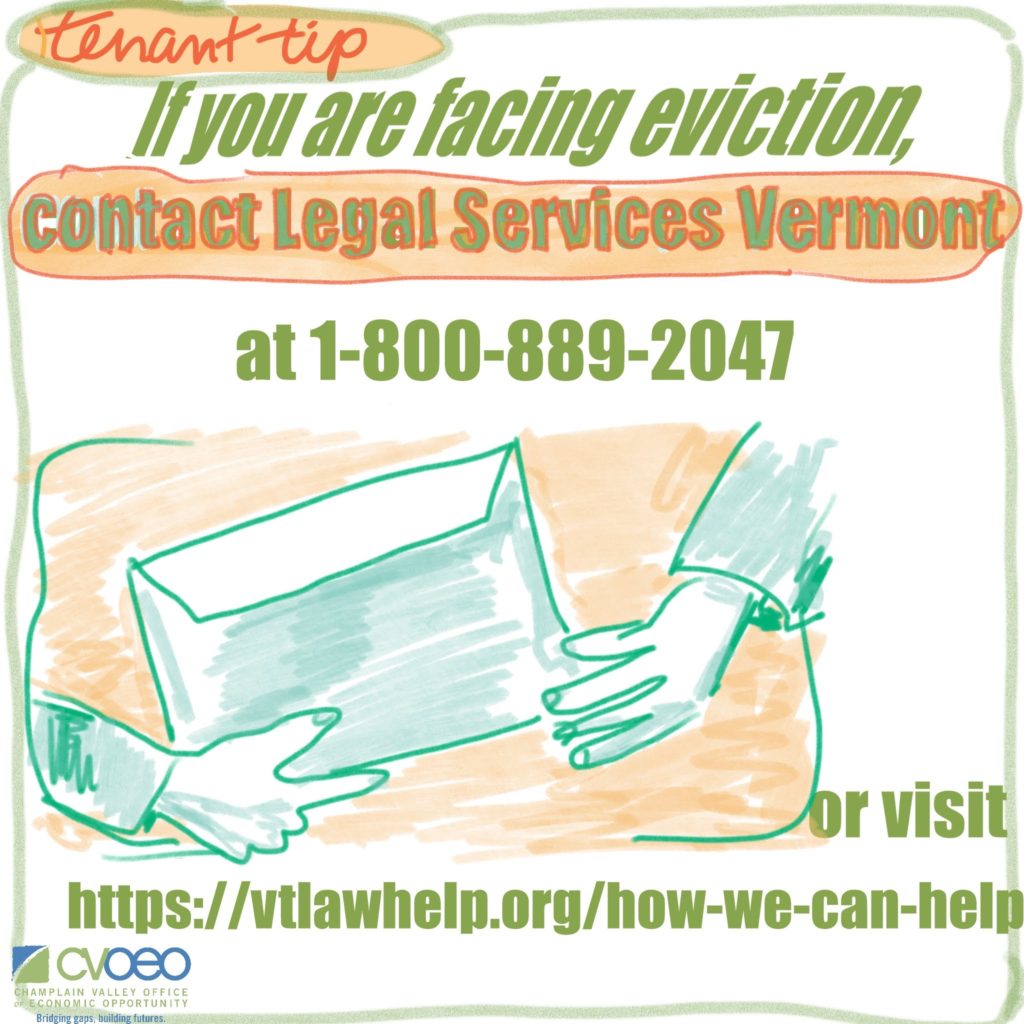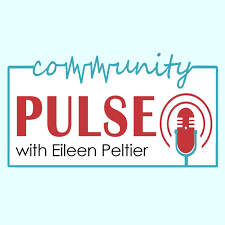Category Archives: Vermont
What does the new CDC Eviction Moratorium Mean for Vermont?
This Q & A was created by Jessica Radbord, Esq. of Vermont Legal Aid
The CDC issued a new order temporarily halting evictions in counties with substantial levels of COVID transmission. As of Aug. 5, Bennington, Chittenden, Franklin, Grand Isle, Orleans, and Washington counties are covered. You can find the covered counties on this map: https://covid.cdc.gov/covid-data-tracker/#county-view.
-
How long does the new eviction moratorium last?
-
Until October 3 at the latest, unless a court strikes it down sooner.
-
If, at any point, a county no longer experiences a substantial rate of transmission, the moratorium will expire 14 days later (unless we return to substantial transmission rates during that 14 day period, and then it kicks back in).
-
-
What does the new eviction moratorium do?
-
- It bars a landlord from filing an eviction case if the tenant has asserted their rights under the moratorium. It also stays nonpayment eviction cases already filed if the tenant has asserted their rights.
- NOTE: If a case or notice of termination is for both nonpayment and breach, the case could still move forward based on the breach.
-
Does the new eviction moratorium apply to all eviction cases?
-
- No. It only applies to evictions for nonpayment of rent for eligible tenants who have asserted their rights.
-
Are all tenants eligible?
-
- No. They have to meet the eligibility criteria on the Eviction Protection Declaration Form. The tenant MUST give the form to their landlord to assert their rights to the protection. The tenant should keep a copy of the form. If there’s already a case pending in court, they should submit a copy to the court.
-
-
- If the tenant has a case pending in court, the tenant should call Legal Services Vermont/Vermont Legal Aid at 800-889-2047. When they leave a message, they should say that they have a pending eviction case and their county
-
-
- NOTE: If the tenant is exercising their rights under the moratorium, they are swearing to try to access all forms of rental assistance available. And here in Vermont, that’s VERAP. If the tenant refuses to apply for rental assistance, they should not use the form. They must follow through with applying for VERAP if they are asserting their rights under the moratorium.
-
Should tenants get legal advice before using the form?
- Sure, if they want! Call Legal Services Vermont/Vermont Legal Aid at 800-889-2047. Leave a message as the intake staff are not taking live calls. It can take up to 7 business days to get a callback because of an extremely high call volume. If a tenant is running up against a deadline, they should indicate in their voicemail what deadline is coming up. The intake staff tries to prioritize callbacks where the person identifies a critical deadline. But for the most part, if the person qualifies based on the simple questions on the form and is willing to apply for VERAP, I don’t see a reason not to use it.
The full text of the new eviction moratorium is here: https://www.cdc.gov/coronavirus/2019-ncov/communication/Signed-CDC-Eviction-Order.pdf.

New VT housing discrimination survey – Please spread the word!
By Shiferaw Gemeda
Fair Housing Project Community Organizer
The Fair Housing Project of CVOEO and the Vermont Human Rights Commission are collecting data on the prevalence of housing discrimination in Vermont. We know that many people experience illegal housing discrimination, exclusion, and harassment but only a small percentage of these instances get reported. We have developed a community survey to learn more about housing stability in Vermont and the ways that people are excluded from or treated differently in housing.
Have you ever been denied access to housing or been treated differently in your apartment search or home purchase, financing or other transactions because of your race, skin color, disability, national origin, religion, age, marital status, sex, sexual orientation/gender identity, or because you have children, receive public assistance (like Section 8 or other vouchers), or have experienced abuse, sexual assault, or stalking?
Please spare few minutes to answer this confidential survey. It is available in English, Nepali, Arabic, Spanish, and French. A printable version is available for download here. The survey deadline is July 12, 2021.
Survey link: https://forms.office.com/r/jDJG5zu1J9
The results will be used to design better strategies to ensure fair and equitable housing choice for all in the state of Vermont.
For more information, contact Shiferaw Gemeda at sgemeda@cvoeo.org.
Rental Housing Safety Bill will Bring Efficiency, Consistency, and Opportunity
A Creative Take on Housing Advocacy
Downstreet Housing Finds a New Way to Tell Their Story with this rich podcast, Community Pulse, featuring Downstreet’s Executive Director, Eileen Peltier. Already, Downstreet Housing has four episodes published and ready for listening! You can find it on their website at downstreet.org/podcast.
This third episode of Community Pulse features the reflections of Will Eberle, field director for the Agency of Human Services (AHS), serving the Barre and Morrisville District.
Eberle’s voice offers a fresh perspective on homelessness, not just from his background working with homeless individuals through his work at AHS, nor his many roles working with at risk youth at Another Way and otherwise in Vermont communities. But Eberle speaks from his own personal perspective, having been without housing himself.

Eberle shares vivid vignettes of homeless individuals who he has worked with or encountered throughout his life, illustrating just how varied that experience might be and look like. Be it the young adult experiencing homelessness for the first time after exhausting their family resources, the full-time, minimum wage worker who sleeps in their car after full day shifts, or the chronically homeless individual who remains upbeat despite lack of access to permanent housing, Eberle shares their narratives with a frank honesty that personalizes a systemic issue across our state and country.
Community Pulse is a creative and thoughtful way to engage the every-day-listener around the housing crisis in our state, a much needed new take on an old, persistent issue. Centering the voices and experiences of the houseless community -during a time when housing could not be more critical to survival- is key in the shift towards more thriving, equitable communities.
